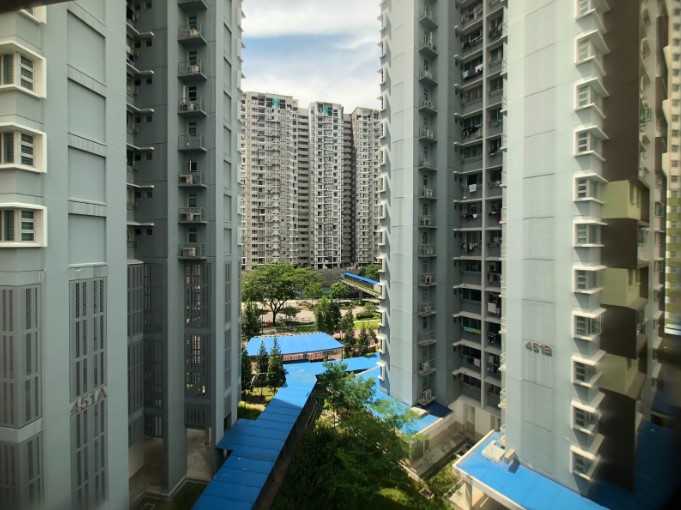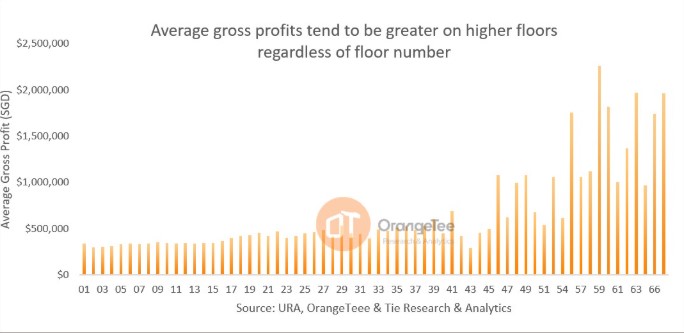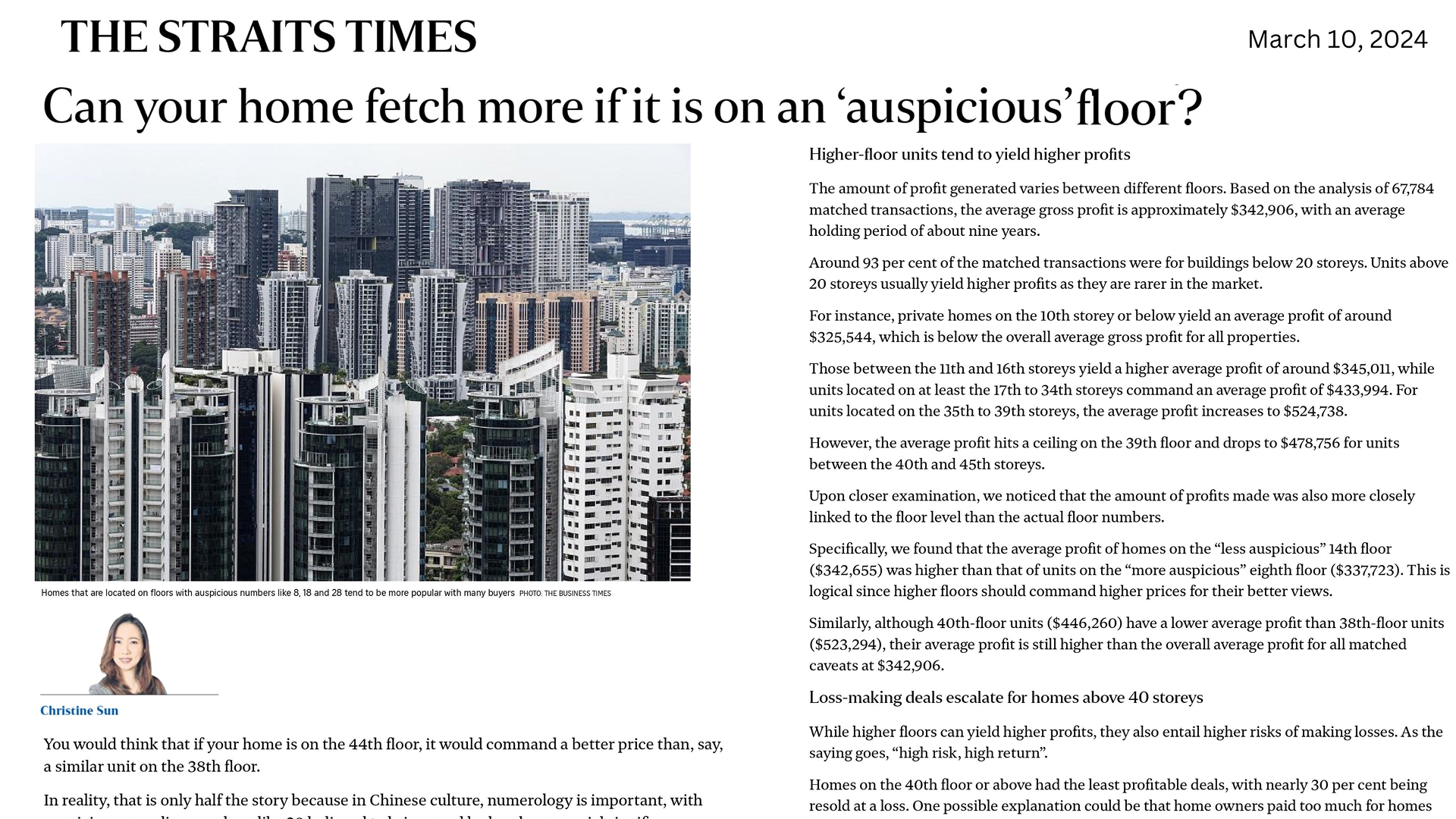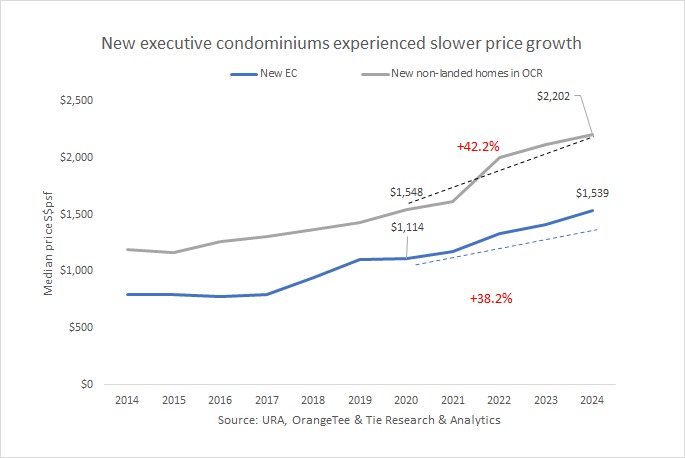Written by: Christine Sun & Clara Grace Lim, Research Team
Estimated Read Time: 7 minutes

If you have ever visited the residential market in Singapore, you might have noticed that some buyers are particularly picky about which floor they choose. And it’s not just about the view—there’s a deeper reason behind the selection process. In many cultures, certain numbers are believed to bring good fortune or special significance. If you’re familiar with Chinese culture, you’ll know that numerology plays a big part in buying decisions. For instance, numbers like 8 are seen as lucky because they sound like the word for “wealth,” while the number 4—well, not so much. It’s often avoided because it sounds like “death.”
So, does this mean that a property’s resale value is somehow linked to whether it’s on the 8th or 18th floor? Or is it all just superstition at play? We dove into property sales data right here in Singapore to find out.
Let’s break it down. After analysing property transactions over the past 30 years, we found something interesting: 83% of homes were sold for a profit. That’s a high percentage! So whether your unit is on a “lucky” floor or not, it seems like most people are making money. But how much money can you make? Does floor number play a role?
We looked at over 81,000 property transactions and found that homes on certain floors had a higher chance of turning a profit. Here’s the breakdown:
Homes below the 10th floor: 80–83% chance of profit.
Homes on the 10th to 19th floors: 83–88% chance of profit.
Homes above the 25th floor: 76–85% chance of profit.
Here’s the twist: the floor number doesn’t really affect the numbers as much as you might think. For example, the 14th floor (which is considered unlucky because of the number 4) had a higher profit rate (87%) than the 8th floor (82%) or the 28th floor (84%). So, despite all the superstition, it seems the “unlucky” 14th floor might be a better investment than those “lucky” floors.
Higher Floors = Bigger Profits (But Also Bigger Risks)

We’ve all heard that homes on higher floors are more desirable, and while that’s mostly true, there’s more to the story.
Here’s how profit varies depending on floor height:
Homes 10 storeys and below: Average profit of S$325,544.
Homes between 11th and 16th floors: Average profit of S$345,011.
Homes between 17th and 34th floors: Average profit of S$433,994.
Homes between 35th and 39th floors: Average profit of S$524,738.
Higher floors may command a premium due to the views, but they also come with higher risks. Profitability starts to change once you reach the 40th floor. Average profit drops to S$478,756 for floors between the 40th and 45th. Why? Because while the views are killer, fewer buyers are willing to pay top dollar for those sky-high floors when it’s time to resell.
So, if you’re thinking about investing in a higher-floor unit, keep in mind: it could mean more profit, but also more competition and fewer buyers down the line.
Here’s the big question: does numerology, like “lucky” and “unlucky” floor numbers, actually impact a property’s resale value?
Interestingly, yes—at least in the luxury market. Wealthier buyers tend to be more influenced by numerology, so properties on “lucky” floors in prime location could see a higher resale value. For instance:
The 8th-floor unit tends to perform better than the 9th-floor unit (even if they’re on a lower floor).
The 13th floor made higher profits than the 14th floor (hello, number 4!).
The 23rd floor outperformed the 24th floor.
However, this effect is much less noticeable in the suburbs. For example, in suburban areas, the 4th floor made more money than the 2nd or 3rd floors. If you’re buying in a more budget-friendly area, don’t get too caught up on whether the floor number is “lucky” or not—it’s likely that other factors, like price and location, will matter more.
In luxury markets, on the other hand, buyers may lean toward higher floors with “lucky” numbers like 18 or 28, and that could affect resale value.
The Psychological Factor

One thing we can’t overlook is the psychological aspect of numerology. For some buyers, choosing a home on a “lucky” floor isn’t just about investment—it’s about peace of mind. Many buyers feel that “lucky” numbers bring them prosperity, while “unlucky” ones might feel like a bad omen. And while that may not directly affect the value of the property, some buyers are simply happier buying a unit with a ‘lucky number’.
For some, a floor number might be a small thing that makes them feel more confident about their decision, which could lead to more demand (and potentially higher resale prices). And let’s not forget the generational shift: younger buyers might be less swayed by numerology and more focused on practical factors like location and amenities. So, in the future, we might see numerology having less influence, as more buyers prioritise long-term investment potential over superstitions.
Market Trends: Can Numerology’s Impact Evolve?

In the future, we could see more market trends that influence the way buyers and investors view numerology. With shifting economic conditions, property trends are continually evolving, and it’s possible that buyers will begin to focus more on tangible factors like building sustainability, eco-friendly initiatives, and proximity to amenities. These elements may start to outweigh superstitions for many buyers, particularly in areas outside of the luxury market where practical considerations can carry more weight.
Moreover, technological advancements in real estate—such as smart homes or eco-conscious designs—could further alter what buyers prioritise. With a growing emphasis on long-term value and quality of life, the importance of numerology may begin to fade, or at least become less of a factor in determining market prices.
Key Takeaways
So, should you avoid the 14th floor because of superstition, or hunt down that “lucky” 8th floor unit? Well, if you're a believer in numerology, feel free to let it guide your decision. But from an investment standpoint, floor height plays a bigger role in profitability.
Here’s the quick scoop:
Most properties are sold for a profit, regardless of the floor number.
Higher floors tend to yield bigger profits—but they also come with more risks.
Numerology matters more in the luxury market than other market segments.
Location, price, and a home’s features are probably going to matter more than the floor number.
The psychology behind numerology can affect buyer demand, especially in the luxury market.
Ultimately, when buying property, it’s important to balance personal preferences with practical considerations. Don’t let superstition be the only thing that guides your decision. Focus on the long-term potential, the price, the location, and how the property fits your needs. Because in the end, the real value lies in the investment and the lifestyle the property offers—not just the floor number.

Media Collaborations
Can your home fetch more if it is on an auspicious floor?
.jpg)
Report
Private Resale Trends Q1 2025

Blog
Why Executive Condominiums will remain attractive to young buyers